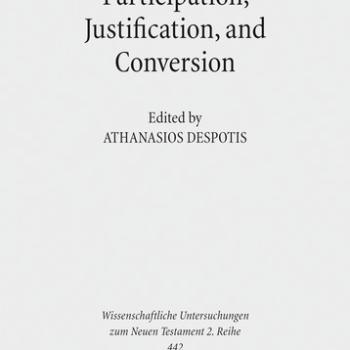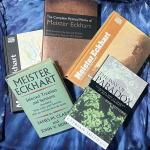
Learning How to Pay Attention
Many of us like to think we are good listeners, but are we learning how to pay attention?
We think we know how to listen well while we are having a conversation with someone else. Maintaining eye contact, but not staring, demonstrates we are paying attention. We are not checking our phone or watching something else. Good listeners do not merely think about what they are going to say next while someone else is talking.
When we listen our minds and our hearts are learning how to be open. We are paying attention to our conversation and have not already moved on to the next subject.
Even when we know the rules of listening well, are we really paying attention?
If it is a challenge for us to listen to another person, how can we even begin to listen to sacred stillness?
We live in a world where it is increasingly challenging to pay attention and listen well. Our brains are constantly inundated with information which distracts our attention, even when we do not realize it. Images and voices flood our imaginations.
The irony is one of the things we value the most is when someone listens to us. Being paid attention to is one of the most affirming experiences we can have.
Some of us follow contemplative practices, in part, to help ourselves be open and attentive. We listen to sacred stillness and practice paying attention.
Practicing contemplative prayer and listening helps me become a better listener. Listening to sacred stillness also teaches us how to pay attention to ourselves and other people.
Paying attention sets us free to connect with our true selves, other people, and the world around us in new ways.
How Do We Learn to Pay Attention?
Some of us want to be free so we no longer need to pay attention to anyone else. We think of contemplative life as freedom to stop listening.
Others of us look forward to being free from the distractions which draw our attention away from listening. We would like to wear headphones which cancel all the noises we are trying not to hear. If only we could block out everything which is not true.
I believe paying attention sets us free. Our eyes and ears are open as we listen to the wisdom and the truths we hear in stillness.
We are not only paying attention to what we believe is accurate or insightful. Stillness draws us in and reminds of the sacred questions and insights which live in us.
Spiritual life, and all our spiritual practices, is all about setting us free. We feel ourselves wrapped up in confusion and false hopes. As we listen to sacred stillness we are reminded our listening is not about finding reassuring answers. Spiritual life is not about acquiring a security blanket of certainty to keep us warm and fuzzy.
Paying attention sets us free to put the insights we gain into practice.
If we do not turn what we hear in stillness into action, we are wasting our attention. Contemplative practice is not about keeping ourselves safe or at a distance from the rest of the world. We take time to pay attention and put our insights and questions into everyday practice.
Spiritual life is not about making sure we have an excellent journal or a mind full of great ideas.
Living With Attention
Some of us evaluate our contemplative practices by how long we can sit still or how well we avoid being distracted.
Contemplative practices are not like the exercises we were given as children to see who can be quiet the longest. We are not being punished, nor are we exploring how long we can give God a break like a parent who is tired of our talking.
God is not distracted by us, no matter how energetic we become. Our contemplative practices are designed to help us pay attention to spiritual life, which is all around us and within us.We have a difficult time paying attention and we miss the beauty and power of spiritual life.
As we learn to listen, we begin to recognize how paying attention sets us free.
We begin to pay attention in new ways. Our attention is drawn to the meaningful issues being decided, or ignored, by our political representatives. We start to pay attention to people we have never met in distant parts of the world. Some of us develop a longer range set of interests and relationships.
Stillness will become a more central part of who we are. We will begin to appreciate how sacred stillness shapes who we are, and who we are becoming.
We Are Free to Pay Attention
It takes us time to pay attention well. We cannot begin listening well, but need to grow into our practice.
Many of us are so accustomed to ignoring the flood of noise in our everyday lives we simply stop paying attention. We defend ourselves from the barrage of sound and have lost our ability to be attentive.
There is no switch we can flip to start listening to sacred stillness attentively. We need to grow our way back into listening and paying attention the way we did as children.
Some of us practice listening to sacred stillness twice each day. We may practice on our own or with other people.
There are times when our practice feels particularly frustrating. It may feel like we are battling against a flood of distractions. Sometimes sacred stillness can be an impenetrable wall for us.
We practice being open and receptive without struggling against ourselves. Our practice is about paying attention to sacred stillness and not our thoughts, words, or feelings.
Listening to sacred stillness is a practice of being open to spiritual truths within us and all around us. Paying attention sets us free.
How are we learning how to pay attention today?
When will we begin to appreciate how to paying attention this week?
[Image by Tim Pierce]
Greg Richardson is a spiritual director in Southern California. He is a recovering assistant district attorney and associate university professor and is a lay Oblate with New Camaldoli Hermitage near Big Sur, California. Greg’s website is http://StrategicMonk.com and his email address is StrategicMonk@gmail.com.

















